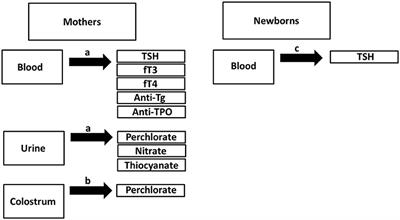REVIEW
Published on 25 Oct 2018
Thyroid Screening in Early Pregnancy: Pros and Cons

doi 10.3389/fendo.2018.00626
- 17,721 views
- 28 citations
12k
Total downloads
65k
Total views and downloads
Select the journal/section where you want your idea to be submitted:
REVIEW
Published on 25 Oct 2018

ORIGINAL RESEARCH
Published on 03 Jul 2018

ORIGINAL RESEARCH
Published on 05 Jun 2018

REVIEW
Published on 28 May 2018

ORIGINAL RESEARCH
Published on 14 May 2018

MINI REVIEW
Published on 30 Apr 2018

ORIGINAL RESEARCH
Published on 06 Apr 2018

ORIGINAL RESEARCH
Published on 26 Mar 2018

GENERAL COMMENTARY
Published on 05 Mar 2018

Frontiers in Human Neuroscience